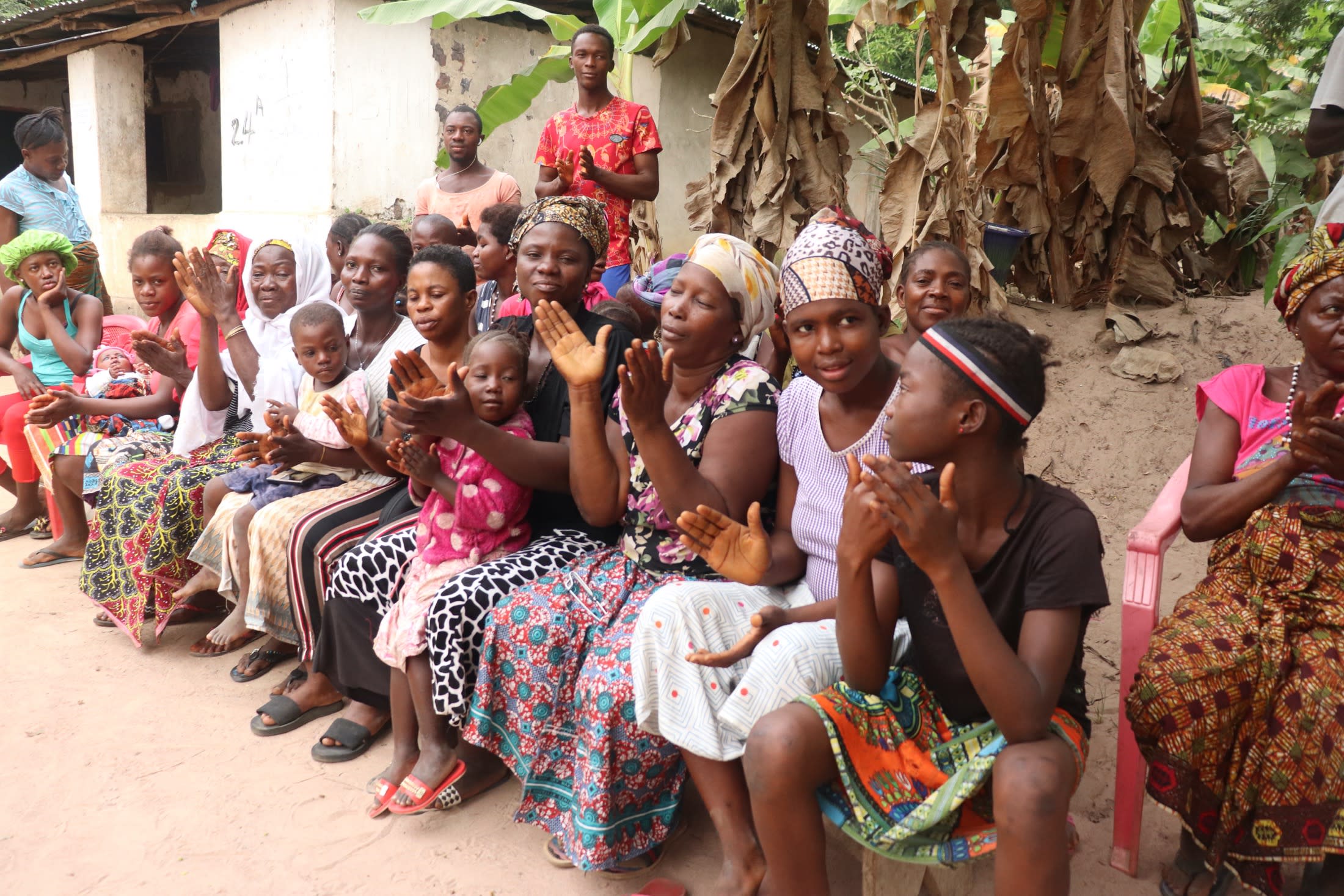Welcome to Rosint
Rosint is fast becoming an urban area with facilities that are equal to people living in the city. The landscape is beautiful with large trees hovering over the houses making the area very cool and nice for people escaping from the hot sun. The trees are a reminder of the long-forgotten family members who have passed on to the afterlife. The growing population in the community has created a surge in the number of homes being built.
The most common livelihood in this community is planting and selling farm produce. Another money-making source of income is selling plots of land. The land sales bring in a lot of income for the direct descendants of the community. More and more young men are moving away from agriculture and moving to the more glamorous occupation of being a driver or motorcycle operator. As a result, much of the agriculture work is left to the women.
Water Situation
This is the most reliable water source for this community and a nearby school.

The other community well located along Old Town Road in Rosint, Sierra Leone is an unreliable source of water despite being protected. A quarter of the year it is completely dry. It is not deep enough to meet the water need for the more than 185 people who rely on it.
Mariatu Jones is the owner of a school in the area. Her own students often turn to the open well near the school because it is less crowded and more reliable. But the safety of this open, contaminated well remains a risk.
"During the day, the children that attend my school are left with no option but to use the open water well that is inside my compound. I know it is not the best because of the risks associated with contamination," she said.
The students pick the water source that is the most reliable and the most convenient. It is also the least safe.
By choosing this open and untreated source, however, the pupils are exposed to waterborne diseases including dysentery and typhoid that cause them to miss more school time and force their parents to spend money on medicine and hospital visits.
The container used to fetch the water is a 5-gallon rubber bucket cut at the side with a long rope tied to the top. The person fetching water must bend over from the knees with legs spread shoulder-width apart. The filled container is hoisted up a distance of 40 or more feet.
The weight of the water makes it very dangerous for the elderly and children to fetch water from this well. The smaller children stand a high chance of falling into the well when there is no adult to supervise the activity, an incident community members report has been all too real in the past.
Well Rehabilitation
The good news is that there is a solution.
A rehabilitation of the well on Old Town Road will alleviate this community of its water challenges. The pump will be removed, and a hand auger will be lowered inside and powered by a drill team. This hand auger will allow the team to drill several meters deeper to hit a sufficient water column that will ensure the well supplies water throughout all seasons.
As the team drills, casing will be installed, transforming the bottom of this hand-dug well into a borehole. PVC piping will connect this lower system directly to the pump, a construction that we know will also improve the quality of water.
Once this plan is implemented, everyone within the community will have access to safe drinking water in both quality and quantity, even through the dry months. That means that students from Mrs. Jones's school will get their water from the safe well, not the open, dirty source.
Hygiene and Sanitation
The state of hygiene and sanitation is poor in this community with only a few exceptions, report our field staff. In addition to rehabilitating the well, there will be hygiene and sanitation training sessions offered for 3 days in a row to all who are interested in attending.
After our visit, the hygiene and sanitation trainer decided it would be best to teach community members how to build a tippy tap (a hands-free handwashing station built with a jerrycan, string, and sticks). They will use these tippy taps for handwashing demonstrations, and will also teach about other tools like dishracks and the importance of properly penning in animals to keep them away from human food and water.
These trainings will also strengthen the water user committee that manages and maintains this well. This the group that enforces proper behavior and reports to us whenever they need our help solving a serious problem, like a pump breakdown.

 Borehole Well and Hand Pump
Borehole Well and Hand Pump

































